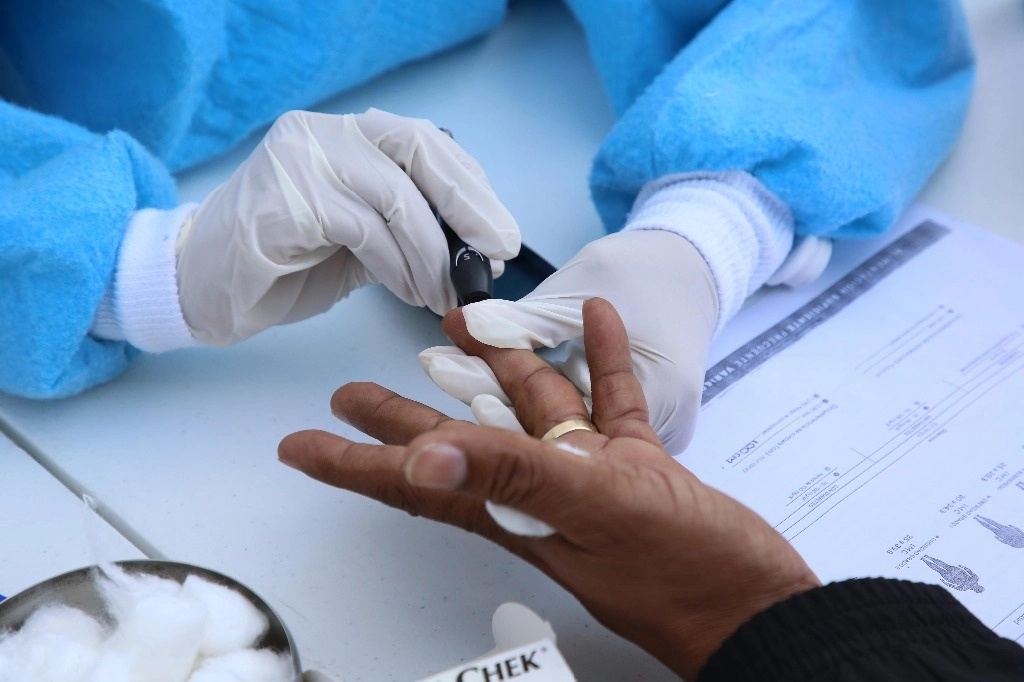Washington y Nueva York. A drug developed by Cuba could soon rescue millions in the United States (US) suffering from the consequences of diabetes.
An American company received approval from government regulatory agencies here to begin the final stage of clinical trials of a medicine developed in Cuba by the Center for Genetic Engineering and Biotechnology (CIGB), called Heberprot-P, which will potentially save people’s lives. with diabetic foot ulcers.
More than 37 million Americans live with diabetes and it is estimated that up to 34 percent of these will suffer from diabetic foot ulcers. Some 154,000 patients with these types of injuries that cannot heal undergo amputations. Nearly half of patients who undergo lower extremity amputation related to diabetic foot ulcers do not survive more than five years
, explains Dr. Charles Zelen, an expert on this topic. He adds that American military veterans and African Americans have a high probability of death as a result of these amputations.
Discovery Therapeutics Caribe, an American biotechnology company that carries out testing of the new drug, was founded specifically to obtain authorization from the federal government in order to market the Cuban treatment for these consequences of diabetes in the United States. The company has a research and collaboration agreement with the CIGB in Havana and an exclusive agreement to market Heberprot-P in the United States and other countries.
In a press release issued this week, the company announced that they had reached a major milestone
in obtaining approval from the Food and Drug Administration (FDA) to begin a phase three clinical trial
–that is, the last stage of testing– of that medicine in the United States.
We have worked extensively and effectively with Cuban doctors and other professionals at CIGB
explained Lee Weingart, president of the company, in an interview with The Conference This is our first drug development project involving a Cuban organization
.
The company’s medical director is Dr. Milton Sanchez-Parodi, a Cuban-born American citizen, who, according to the company’s website, has been actively involved in improving United States-Cuba relations since 1985
.
The drug Heberprot-P is now available in Mexico and 25 other countries. Some 426,232 patients have already used it in other nations after it was approved by Cuban authorities in 2006. But the US blockade against Cuba and the requirements to obtain commercial licenses have delayed the introduction of this medication in the United States.
The company, on its website, points out that US laws specifically say that Persons under the jurisdiction of the United States are authorized to participate in any transaction related to joint medical research projects with Cuban nationals.
.
To the question of The Conference Regarding how long authorization could take for the drug to finally be available in the United States, Weingart responded that Phase three clinical trials are the final stage of human testing before a new drug or medical intervention is submitted to regulatory authorities for approval.
. He added that it is difficult to estimate how long we will have to wait between the start of this latest round of testing and when the treatment will be available on the market to the public, but noted that typically they are a number of years
.
Dr. David Armstrong, a distinguished podiatric surgeon at the University of Southern California and a world-renowned researcher in diabetic foot ulcers, added that There is an urgent need for treatments that can slow the progression of diabetic foot ulcers before amputation becomes the inevitable solution… This trial represents an exciting potential to change the current paradigm and offer new hope for those who desperately need it.
.
#Drug #developed #Cuba #save #millions #diabetic #foot
– 2024-05-03 19:24:37
